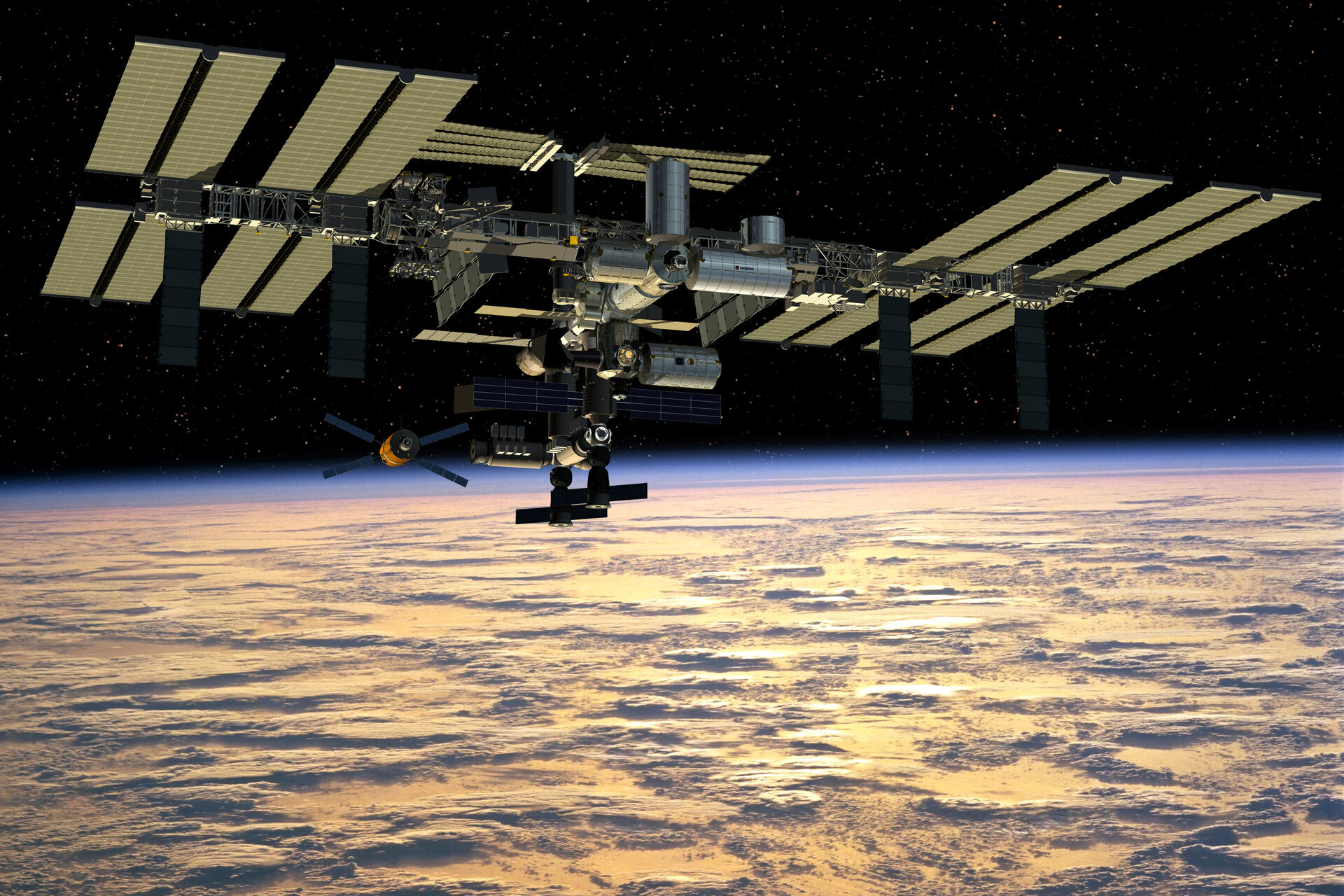

The situation is worst during the Mars transfer due to the lack of the protective actions of Mars and its thin atmosphere. The only SPE measured on the Martian surface, a mild one, provided an additional dose equivalent of 0.025 mSv. This is due to the thin Martian atmosphere, to the shield provided by the planet itself, and to the presence of the radiation trapped in the SAA in the ISS measurements. The average radiation environment on the Martian surface is measured to be about the same (0.64 ± 0.12 mSv/day) as that on the ISS ( Hassler et al., 2014). Of course, during extravehicular activity the exposure is several times that inside the spacecraft, and the radiation risk increases accordingly. During an SPE, this value can increase about one order of magnitude ( Semkova et al., 2013).


Onboard ISS, under quiet conditions (no SPEs), the dose equivalent rate was about 0.647 mSv/day at the end of May 2016 ( Berger et al., 2016). Let us briefly compare the radiation measured on Mars with what is measured on the ISS. Dario Del Moro, in Extreme Events in Geospace, 2018 6.3 Radiation on Mars The American and Russian segments of the space station were deliberately built to be intertwined and technically interdependent, so that any abrupt withdrawal of Russian cooperation aboard the ISS could seriously disrupt a centerpiece of NASA's human spaceflight program.Livio Narici. "We must take into account that if we stop manned flights for several years, then it will be very difficult to restore what has been achieved." "We, of course, need to continue operating the ISS until we create a more or less tangible backlog for ROSS," Solovyov said. Solovyov said he expected ROSS would be fully assembled in orbit sometime in 2028. Roscosmos published on its website on Wednesday an interview with Vladimir Solovyov, the flight director for the space station's Russian segment, who was quoted as saying Russia must remain on the station until ROSS is operating. NASA, Roscosmos, ESA and the station's other partners plan to discuss the prospect of extending each other's presence on the laboratory to 2030 during a periodic meeting on Friday of the board that oversees the station's management, Lueders said. The Ukraine conflict also sparked tensions between Roscosmos and the European Space Agency (ESA).Ī formal agreement to extend Russia's ISS participation beyond 2024 has not yet been reached. It offers one of the last vestiges of cooperation between the United States and Russia, though its fate has been called into question since Russia invaded Ukraine in February, straining bilateral relations on a variety of fronts as the Biden administration imposed economic sanctions on Moscow. The space station, a science laboratory spanning the size of a football field and orbiting some 250 miles (400 km) above Earth, has been continuously occupied for more than two decades under a U.S.-Russian-led partnership that also includes Canada, Japan and 11 European countries. "We're not getting any indication at any working level that anything's changed," Lueders told Reuters on Wednesday, adding that NASA's relations with Roscosmos remain "business as usual." space agency that Roscosmos wished to remain in the partnership as Russia works to get its planned orbital outpost, named ROSS, up and running. Kathy Lueders, NASA's space operations chief, said in an interview that Russian officials later on Tuesday told the U.S. Taken together with remarks from a senior Russian space official published on Wednesday, the latest indications are that Russia is still at least six years away from ending an orbital collaboration with the United States that dates back more than two decades.Ī schism in the ISS program seemed to be closer at hand on Tuesday, when Yuri Borisov, the newly appointed director-general of Russia's space agency Roscosmos, surprised NASA by announcing that Moscow intended to withdraw from the space station partnership "after 2024." read more counterparts that Moscow would like to keep flying its cosmonauts aboard the International Space Station (ISS) until their own orbital outpost is built and operational, a senior NASA official told Reuters on Wednesday. WASHINGTON, July 27 (Reuters) - Russian space officials have informed U.S.


 0 kommentar(er)
0 kommentar(er)
